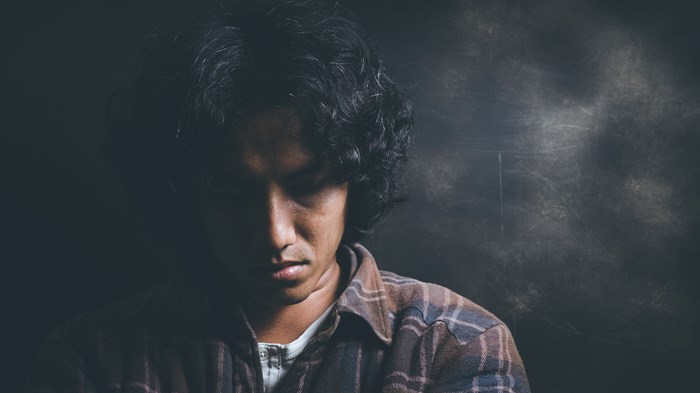"How Long, Oh Lord?" Why the Church Must Listen, Lament, and Lean In.

I was at a doctor’s appointment recently, waiting in the reception area for my name to be called when another patient struck up a conversation with me. After discovering I was a church planter in the same community where she lived, she asked if our church was doing anything to support Ukraine after the Russian invasion.
“Yes,” I responded, then proceeded to list the small, but intimate ways we were doing our part to support this war-ravaged nation and its refugees.
As I spoke, I noticed something shift in the conversation and in this woman’s facial expression. Her body, tone of voice, and face suddenly became pinched. I clearly triggered her but could not begin to imagine how I had caused offense. So, in an effort to move the conversation back to her and hopefully back to some common ground, I returned the question, “What about you? Are you or your church doing anything for Ukraine?”
“No.”
And let me tell you, this was a lightning strike of a no.
“We would never do anything like that.”
Call me totally naïve and biased, but I was shocked, floored, disturbed to learn that day that there is a population—albeit a fringe population—of churchgoing Christians who believe that offering humanitarian support to the suffering people in Ukraine is wrong. Thankfully, so many churches are stepping in where they can.
This conversation stuck with me, though. It needled and tugged at me for weeks. While I certainly have a long way to go in learning the best practices for humanitarian disaster relief, there is one thing I know to be sure: ultimately, there is only one question for followers of Jesus to grapple with when it comes to our compassion efforts –Who is my neighbor? – as asked by Jesus himself.
The Son of God’s answer lets us know that we are called to stand with and offer compassion to anyone who suffers – be it our friends, strangers, or yes, even those we consider our enemies. Period. No caveats. No excuses. No cap.
Lately I have found myself grieving for what that brief conversation represents - a group of Christians, who for whatever reason they can muster, are intent on justifying their own lack of compassion.
Indeed, the most recent racially-motivated hate crimes in the news - the shootings at the Asian-owned hair salon in Dallas, the mass shooting in Buffalo, and the shooting at the Taiwanese immigrant church in Laguna Woods, California, have once again revealed this heartbreaking reality: many Christians are unwilling to publicly denounce racism and decry these acts as horrendous.
A friend of mine, South Korean-American Tik Tok evangelist, Michael Mims tweeted this, “I’m just very confused at how many Christians are so vocal about aboloshing porn…[and] abortion…but not a peep about white supremacy and acts of racism.”
This makes me think of the prophet Habakkuk. In light of the violence and injustice he witnessed, the minor prophet laments:
“O Lord, how long shall I cry for help,
and you will not hear?
Or cry to you “Violence!”
and you will not save?
Why do you make me see iniquity,
and why do you idly look at wrong?
Destruction and violence are before me;
strife and contention arise.”
So the law is paralyzed,
and justice never goes forth.
For the wicked surround the righteous;
so justice goes forth perverted. (1:2-4)
The practice and expression of lament (known, biblically, as an impolite plea) is part of our historic, orthodox, ecumenical Christian faith. And some specific laments, like Habakkuk’s above, express outrage and sorrow for communal sins such as racism, violence, blind triumphalism, and pharisaical attitudes within the God-fearing community. These protest-laments voice anger and sorrow about evil, inequitable power structures and demand a redistribution of that power. Walter Bruggeman suggests that these types of laments are as dangerous as “Lech Walesa or Rosa Parks asserting with these bodies that the system has broken down and will not be honored any longer.”
After that doctor’s office conversation and the last few weeks, I realize that what I am lamenting right now, alongside the racist violence itself, is also the lack of protest lament from some of my brothers and sisters in the church. Furthermore, I can’t help but consider the longsuffering of the SBC abuse victims as noted in recent Guidepost report findings – the lack of dignity with which these women have been treated for decades, the pattern of denial and deflecting. The way we have collectively ignored and scapegoated our own sisters’ laments of injustice and pain, for no other reason than to protect an institution and its power-holders. We’ve been silent in the face of evil and in so doing have committed violence ourselves.
How long, Oh Lord?
It feels like justice may never go forth, strife and contention will always continue to arise, if the church keeps up her unwillingness to enter into the pain of others.
I lament that we find excuse after excuse not to suffer with our suffering neighbor, that we keep our distance from those we disagree with. I lament that we decide who is unholy and then steer clear of them – something Jesus never did, never does. I lament that we don’t listen to those who are crying out in pain. I lament that we cannot simply name racism evil and sinful without qualifying it. And I lament the log in my own eye as well. How different am I, really, from my sister in the waiting room that day? How many times have I blatantly turned away from the pain and injustice all around me and rested in my privilege?
How long, Oh Lord?
God’s response to Habakkuk’s own protest-lament is this:
“Look among the nations, and see; wonder and be astounded. For I am doing a work in your days that you would not believe even if you were told (1:5).”
I wish I had more to offer than this, but ever since that doctor’s office conversation, this has become my meager breadcrumb prayer: May we, the people of God, become a people who listen, lament, and lean in – and see the wonder of God at work in our days. May we suffer with those who suffer and be astounded by you.
Aubrey Sampson, M.A. Evangelism and Leadership, is the author of three books including The Louder Song: Listening for Hope in the Midst of Lament and her latest, Known: How Believing Who God Says You Are Changes Everything. She co-planted Renewal Church in West Chicago, and is the cohost of The Common Good radio show and the Nothing is Wasted podcast. Aubrey is passionate about hope for the hurting Christian.
The Better Samaritan is a part of CT's
Blog Forum. Support the work of CT.
Subscribe and get one year free.
The views of the blogger do not necessarily reflect those of Christianity Today.





















